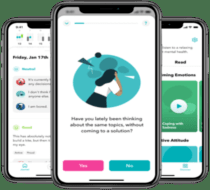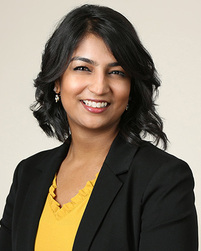Online Mood Swings Counselling | Best therapist for Mood Swings help
- Affordable and confidential mood swings counselling sessions
- Video calls or chat sessions with Counsellors/ Psychologists specialized in mood swings issues
- Improve your mental wellbeing whenever and wherever you want
Begin Therapy
Consult online with best Therapist
"*" indicates required fields
A ‘Better’ Model for mood Swings Counselling
Mantracare is with you on the journey to heal your mood swings. We will help you right from knowing the root causes of your mood swings to learning healthy coping mechanisms. Our therapies are 100% online and are conducted via video call or messages. So, feel free to take sessions wherever, whenever you need it
Specialized Therapists
As per your story and case, we assign the best counsellors experienced in mood swings issues. They work with you proactively to understand and address the root cause of your depression, hopelessness and persistent sadness.
Affordable & Effective
We believe that therapies should be driven more by “Need” than “ability to pay”. Our online sessions are 90% less expensive than face-to-face therapy. Online counseling starts at just $10.
Mood Swings Self Care
We provide you continuous mood swings help with self-care tools, mental healing videos, chat groups, meditations, breathing exercises and more. Our therapists are available 24/7 via messages to provide care, whenever and wherever you need it.

Best Mood Swings Counselling, Now in Your Pocket
Our therapists or counselors are available in all parts of the world, accessible via an easy-to-use mobile application. Our matching experts take your preferences into consideration and connect you with therapists specialized in mood swings issues. Movever, there are hundreds of free self help tools on our app, available 24×7.

How It Works
After filling out our questionnaire, you will be matched with a mood swings counselor based on your needs and preferences. You and your counselor will get your own secure and private “therapy room” where you can message your counselor at any time wherever you are. You can also schedule a session so speak live with your counselor over video or phone.
You can write or talk about depression, the things going on in your life, ask questions, and discuss the challenges you’re facing and your counselor will provide feedback, insights, and guidance. Together you’ll work towards making a positive change in your life, accomplishing your goals, and overcoming your depression.

Signup for Mood Swings Counselling
Just fill up a 5-minute online form to tell us about your mood swings symptoms and treatment expectations.

Meet your Therapist
Based on your preferences and neet, we will connect you with mood swings counselors that are available 24/7 to you via call or chat.

Connect to our app
Heal yourself with video or chat counselling sessions available in the app. Access helpful self-care tools on our app to help you heal your depression, and take control of your life
Meet the Best Mood Swings Therapists
MantraCare psychologists help you counter mood swings through a combination of positive conversations, exercises, and meditations. Our mood swings therapy services are better than the traditional face-to-face counseling in multiple ways:
- Over 5,000 counselors & therapists with expertise in mood swings and other areas
- All counselors are licensed, trained, accredited and highly experienced
- Match with an available counselor who is the best fit for your mood swings needs
- Unlimited private one on one communication with your therapist
- Gain access to constructive, educational group webinars on depression

A Guide on Mood Swings
Understanding Mood Swings
Mood swings happen to the best of us. For moody people, mood swings can occur easily and often. But what are mood swings? Basically, mood swings refer to a person’s change in emotions or mood from one situation or event to another. Mood changes that happen quickly and don’t seem connected with anything else going on in your life may be mood swings.
Types of Mood Swings
There are many types of mood swings that people might experience in their lives. These are the most common types of mood disorders:
Major depression: this is characterized by a person’s inability to feel pleasure or interest in life, the loss of energy and feeling extremely tired.
Dysthymia: this is similar to major depression but it is not as severe.
Bipolar disorder: a person with bipolar disorder experiences extreme highs and lows, going from being productive one moment to finding themselves in deep despair the next.
Mood disorder related to another health condition: this type of mood disorder is usually caused by the body’s reaction to a certain health condition.
Pregnancy: some pregnant women experience negative feelings towards their changing bodies and they feel sad, angry or anxious as well as experiencing heightened emotions such as crying all day for no reason.
Substance-induced mood disorder: Mood disorders may be caused by the intake of medication, alcohol or caffeine.
Symptoms of Mood Swings
Symptoms of mood swings can vary a lot depending on the type of mood swing and what’s causing it. Some people experience dramatic mood swings that include intense highs, such as mania or euphoria, and lows like deep depression.
Other symptoms are:
- Feeling hopelessness
- Feeling worthless
- Feeling guilt
- Feeling restless or agitated.
- Decreased energy
- Troubling focusing
- Frequent physical ailments such as fatigue, headache or stomach pain
- Sleep problems
Causes of Mood Swings
Stress and Anxiety: Mood swings can be caused by stress and anxiety. Our body experiences a surge of adrenaline (a hormone) when we are stressed or anxious, which causes our moods to change quickly.
Medication: Mood swing triggers that stem from medication may include birth control pills, antidepressants and other prescription drugs. Talk with your doctor if you think your medication is triggering an emotional change.
Hormonal Changes or Other Medical Conditions: Hormonal changes or other medical conditions, such as thyroid issues and menopause have been linked to mood swings that are often difficult to predict.
Conflict in Relationships: When our relationships go through rocky periods, it’s common for us to experience emotional changes. While it can be difficult, allow yourself time and an open mind as you work through the issues with your partner or family member.
Borderline Personality Disorder: People with Borderline Personality Disorder (BPD) often experience intense and unpredictable mood swings.
Attention Deficit Hyperactivity Disorder (ADHD): People with ADHD also experience mood swings due to their brains not regulating dopamine and norepinephrine levels properly.
Common triggers of Mood Swings
Whether your excessive mood swings are caused by an underlying medical issue or something else, certain factors might set them off. This includes the following:
- stress
- a major transformation in your life
- your dietary habits
- your sleeping patterns
- medicines
Consult your doctor if you have frequent and severe mood swings. It may be beneficial for you to keep track of when you have a mood shift and what you were doing before it occurred. This can assist your doctor figure out if you’re reacting to a lifestyle change or if there’s something more serious going on.
How to control Mood Swings?
Being able to recognize how you feel can help you determine the best way to deal with your mood swings. Once you’ve realized what sets off your negative feelings or how long it takes for them to pass, try using these coping mechanisms.
Maintain a schedule: maintain a schedule as much as possible and try to follow it. this will help you lead an organized life and avoid unnecessary stress caused by unplanned activities
Exercise: regular exercise is one of the best ways for controlling mood swings
Sleep well: sleep enough hours and also maintain proper sleeping habits such as going to bed at the same time every day
Avoid stimulants: avoid caffeine, nicotine and other stimulants
Practice relaxation techniques: try meditation or yoga to soothe your nerves. deep breathing can also help you stay relaxed in stressful situations.
Express yourself: try to write your feelings in a journal. this will help you deal with negative emotions by getting them out of your system
Talk it out: talking with others about how you feel can also help.
Socialize more: spend time with your friends and family, doing fun activities together is a great way to get out of a slump!
Try new things: change up your routine by trying something new every day
Be approachable: avoid snapping at people for no good reason. try to be patient with people who are acting out, they’re probably just having a tough day too!
Seek professional advice: if the symptoms of mood swings persist, consult a doctor immediately. there might be some underlying health issue causing these changes and ignoring it can lead to bigger issues later on.
Therapy for Mood Swings
Conditions linked with mood abnormalities, such as bipolar disorder and depression, may be distressing, and treatment can frequently help people cope with mood swings. Because mood swings are a sign of an underlying problem rather than a diagnosable ailment, a mental health expert will work with the client in treatment to figure out what’s causing them. Individuals might also acquire techniques to increase control of mood swings in treatment. It may be simpler to address the underlying difficulties after this is accomplished—often through approaches like journaling, meditation, mindfulness, or breathing exercises.
A therapist can frequently assist a person in determining if mood swings are a symptom of a mental health problem or a symptom of something else. Whether mood swings are caused by mental or emotional discomfort or are specific to a particular scenario, counselling may frequently help in the process of recognising the causes of highs and lows, as well as situations that may trigger mood swings. Therapy can also aid in the development of coping mechanisms for dealing with stressors as they emerge. In therapy, one might be able to improve one’s ability to focus on the present moment, with the overall objective of learning how to regulate moods constructively and maintain self-control.
10,000+ Happy & Healed Mood Swings Patients

“It was the most rewarding event of my life. It fascinates me to reflect on how I used to be and how I am today. I only wish I had gone to Mantra Care sooner. I am really satisfied with the care and services they give to their patients.”
Kevin, 1 year on MantraCare
5000+ Mood Swings from across the world








Our therapists take care of your ‘unique’ needs
Not all mental health problems are the same. Different types of problems require different treatments. At MantraCare, 5000+ therapist’s cover a range of specialities to meet your needs:
Frequently Ask Questions
Mood swings refer to a person’s change in emotions or mood from one situation or event to another. Mood changes that happen quickly and don’t seem connected with anything else going on in your life may be mood swings
While mood swings can be entirely natural, induced by stress, and/or an indication of a physical health problem, they can also be a sign of mental illness. A labile mood, on the other hand, is not exclusive to mental disease.
You might be irritable one minute and pleased the next. You may also be experiencing feelings that are causing harm to your life. You could, for example, feel so ecstatic that you can’t control desires to spend money, confront others, or participate in other uncontrolled or dangerous activities.
Depression. Mood fluctuations are common among those who are depressed. They’ll have their lows, then feel OK, but they won’t experience the manic highs that bipolar patients do. People who are depressed may feel worse in the morning and then improve later in the day.
Suicide risk is increased by mood disorders. Mood disorders include the following: Major depressive disorder (MDD) is characterised by bouts of intense sorrow that last for a long time. Bipolar disorder, often known as manic depression or bipolar affective disorder, is a kind of depression marked by periods of sadness and mania.
When mood swings become a major concern, it starts causing troubles in your day-to-day life. You will not be able to concentrate even after trying so hard. You will unnecessarily start feeling agitated and angry
Online mood swings therapy has been proven to have the same effectiveness as in-person therapy. There are multiple reasons why online counselling proves to be better:
No need to travel to a psychologist, sit on the same couch, and talk with the same therapist. Online mood swings therapy doesn’t require that you leave the comforts of your home or office. Talk to your therapist in your pajamas, sitting on your bed!
Most of us live hectic, unbalanced lives wherein scheduling a traditional therapy session becomes prohibitive. Online mood swings therapy allows you to set the time, location, and initial direction of the therapeutic relationship. It’s freedom that puts you, the client seeking mental health solutions, first.
We offer a vast array of free self-help tools such as stress & anxiety control exercises, relaxation techniques, mindfulness exercises, and helpful blogs. We also offer mental healing videos, chat groups, breathing meditations, and more, available 24/7 at no charge. However, there is a nominal price for mood swings counseling. That said, we provide one of the most affordable ways to tackle mood swings.
The cost of mood swings counseling through MindMantra ranges from $15 to $40 per week. Unlike traditional in-office therapy which can cost over $150 for a single session, your MindMantra membership includes unlimited text, video, as well as audio messaging.

